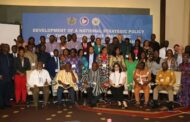The Ministry of Health in collaboration with the University of Bergen, Norway, and the University of Ghana has launched the Support to Evidence-informed Priority Setting (StEPS) Project for Non Communicable Diseases (NCDs) in Ghana.
The aim of the project is to enhance prudent health resource management through priority setting. It is also to facilitate effective priority setting in order to improve efficiency, equity and financial risk protection from essential NCDs.
The Minister for Health, Hon. Kwaku Agyeman- Manu, in a speech read on his behalf by Dr Hafez Adams Taher, Director for External Health Cooperation at the Ministry emphasized that the goal of the project is to navigate the complexities of NCDs, identify the most effective interventions, and allocate resources judiciously. This initiative according to the minister is a crucial step toward reducing the burden of NCDs on our healthcare system and on society as a whole.
He stated that the success of the StEPS Project is predicated on the power of collaboration and multi stakeholder engagement and therefore called on Healthcare professionals, policymakers, researchers, civil society organizations, and community leaders to rally under the banner of the StEPS Project, underscoring on the country’s collective commitment to addressing NCDs holistically.
Hon. Agyemang-Manu mentioned that, Tobacco use and harmful alcohol consumption are formidable risk factors for NCDs and added that the StEPS Project underscores the importance of raising awareness about the dangers of these behaviors. The project also provides support for individuals who seek to quit smoking or reduce alcohol consumption.
He therefore urged the steering committee members and Technical Working Group Members of the StEPS secretariat to provide leadership to ensure effective implementation to achieve the targets, based on the clear terms of reference.
Professor Lumbwe Chola (StEPS Project Coordinator, Norway), in an address said the project will define and develop capacity in health economics and priority setting related to Non-communicable Diseases in Ghana.
He mentioned that the expected outcomes of the project is to train experts in health economics and priority setting to strengthen capacity in the Ministry of Health.
Dr. Mrs Martha Gyansa-Lutterodt, the Chairperson for the occasion in her closing remarks, said that the burden of NCDs in Ghana requires a comprehensive and targeted approach and by addressing risk factors, Ghana can effectively reduce the impact of NCDs and enhance the overall health and well being of its population.
Source:Mybrytfmonline.com/Kwabena Nyarko Abronoma




















































